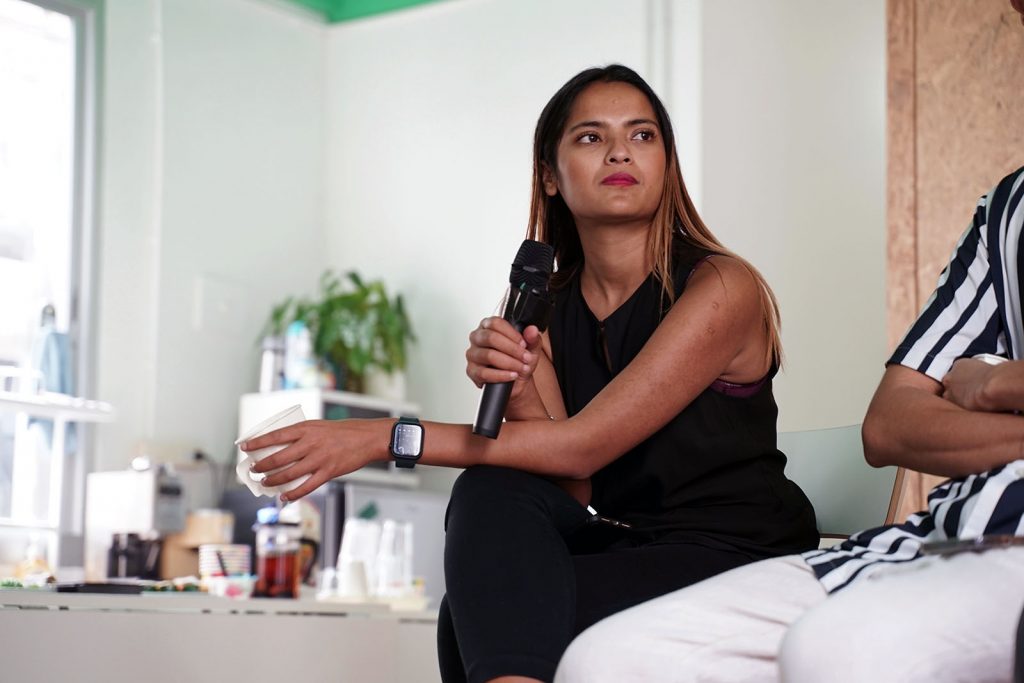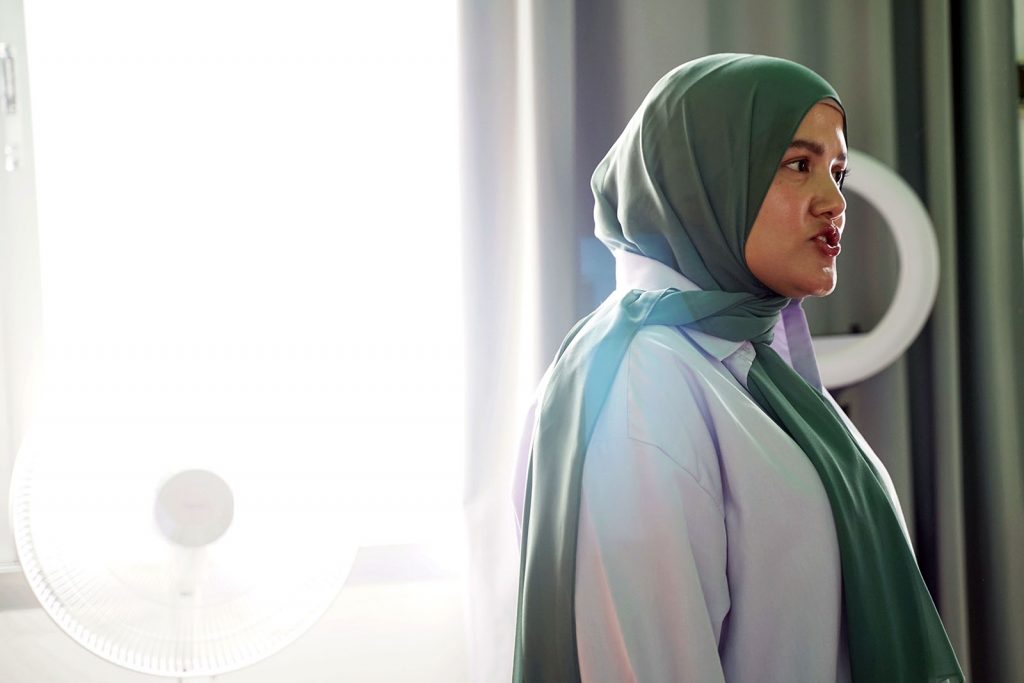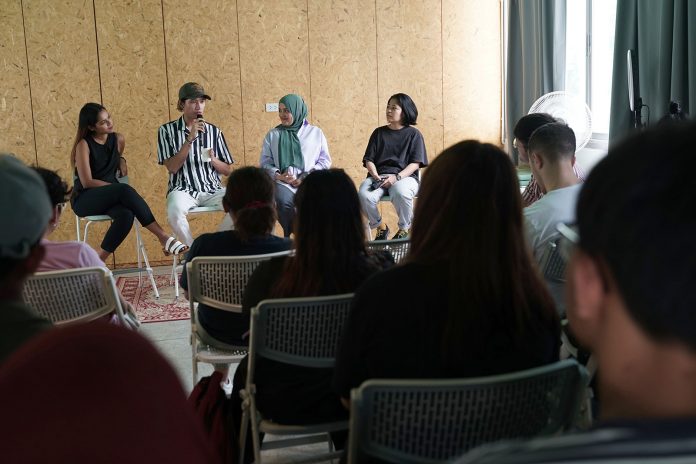As the war in Myanmar continues, Rohingya women are speaking out about the need to create safe spaces and empower themselves in the face of ongoing discrimination and violence, both in Myanmar and in countries where they have sought refuge.
By Nathaphob Sungkate
BANGKOK—A recent film screening and panel discussion shed light on the ongoing discrimination and violence faced by Rohingya women in Myanmar and across Southeast Asia.
The event, held on 25 May at The Fort in Bangkok, featured the short documentary “The Journey of Love: A Story of Sisterhood, Bravery, and Community Care in Exile” by ALTSEAN-BURMA and the Rohingya Maîyafuìnor Collaborative Network (RMCN).
The film chronicles the lives of five Rohingya women who fled violence in Myanmar to seek refuge in the United States, Canada, New Zealand, and Australia, portraying their current roles as advocates for Rohingya women’s rights.
The event was organised by RMCN, a group established by the five women featured in the documentary. Aiming to support the rights of Rohingya children and women displaced in Asia, the organisation works mostly in Thailand, Malaysia, and Indonesia.
Following the film screening, a panel discussion led by Yasmin Ullah and Noor Azizah, two of the organisation’s founders, addressed the situation of Rohingya people in the aftermath of the 2021 military coup in Myanmar.
Myanmar’s army forcibly recruits Rohingya
As Myanmar’s ruling military faces increasing pressure from the People’s Defense Forces and ethnic armies, it appears to be resorting to desperate measures. According to news reports and an investigation by Human Rights Watch, the junta is forcing Rohingya men and boys in Rakhine state and across the border in Bangladesh’s refugee camps to join the army.
In 2017, a military campaign forced approximately 700,000 Rohingya to flee their homes and seek refuge in Bangladesh. The crackdown is now the focus of an ongoing UN genocide court case.
In the wake of this mass exodus, the Myanmar authorities started setting up internment camps in the areas formerly inhabited by the Rohingya. According to Yasmin Ullah, a Rohingya author and the executive director of RMCN, these internment camps were ostensibly constructed to house returning Rohingya and to project a positive image to the international community.
“If there are Rohingya people in the country, the Myanmar military government can tell the international community, ‘I am helping the Rohingya people return’,” Ullah said.
Advocacy groups say Rohingya people have also been subjected to violence by local militia groups such as the Arakan Army. In a recent interview with The New Humanitarian, the armed group responded to the allegations.
According to a report by RMCN, the military junta has also increased surveillance, arbitrary detention, and mobility restrictions on Rohingya. It has arbitrarily detained at least 3,841 Rohingya, including children, simply for “travelling without official permission”.
In addition, the junta has expanded the use of the national verification card (NVC) system. NVC are identity cards given out by the junta, which falsely categorise Rohingya as ‘Bengali’ and seek to establish them as foreigners. Since taking power in a coup in 2021, the junta has required all Rohingya to present their NVC to access health care and education.
Furthermore, the report highlights gender-based violence and sexual violence risks faced by Rohingya women, contributing to a high rate of displacement among women and children.


Rohingya women and girls suffer in exile
Despite leaving Myanmar and seeking refuge in countries like Thailand, Malaysia, and Indonesia, many Rohingya women continue to face violence and gender discrimination. Noor Azizah, a Rohingya human rights advocate and director of RMCN highlighted the different challenges Rohingya women face in the ASEAN region.
For instance, in Malaysia, Rohingya women have to deal with high medical fees. Noor cited a case where a pregnant Rohingya woman travelled to a clinic for prenatal care but was required to pay a deposit of 5,000 ringgit (about $1,000 USD). Tragically, both the woman and her unborn child died because they couldn’t afford medical treatment.
In Indonesia, women and children face significant barriers to accessing education. Approximately 2,000 Rohingya children in Aceh are unable to enter the Indonesian education system, according to RMCN. Among them, 80 are orphans who have been separated from their parents for various reasons. Consequently, the Rohingya community has had to establish their own schools because they cannot enrol their children in the formal education system.
This situation differs from that in Thailand, where, as Noor highlighted, policies grant all children the right to access education. Thailand recognises birth registration rights and the legal status of individuals under the International Covenant on Civil and Political Rights (ICCPR) and Article 7 of the Convention on the Rights of the Child (CRC), to which Thailand is a signatory.
Nevertheless, Rohingya in Thailand, both women and men, often live in hiding due to the Thai government’s refusal to grant them official status. Schools at the border are also struggling to serve the growing number of refugee children from Myanmar.
Noor said that she feels most relaxed in Thailand because the society here is relatively open. In contrast, in Malaysia and Indonesia, she faces significant social pressure, which includes not recognising the Rohingya as Muslims.
“The dream for my community is that we can return to our homeland and rebuild our community,” Azizah told HaRDstories. “We have been deprived of our home over the past decades due to displacement and the violence we have faced.”
At the end of the event, an attendee who identified herself as a Rohingya woman who recently escaped from Myanmar nine months ago shared her experience. She emphasised that Rohingya women continue to face discrimination based on gender bias, starting from within their families by their husbands and sons, extending through their communities, and up to the national level. She also mentioned that she could not identify herself as a Rohingya while in Myanmar.
“I hope that one day I can introduce myself as a Rohingya woman. There is very little space for Rohingya women, so we must create our own spaces. This is the time for us to help ourselves. If opportunities don’t come to us, we need to go out and find them.”
*This story was commissioned and first published by hardstories.org



